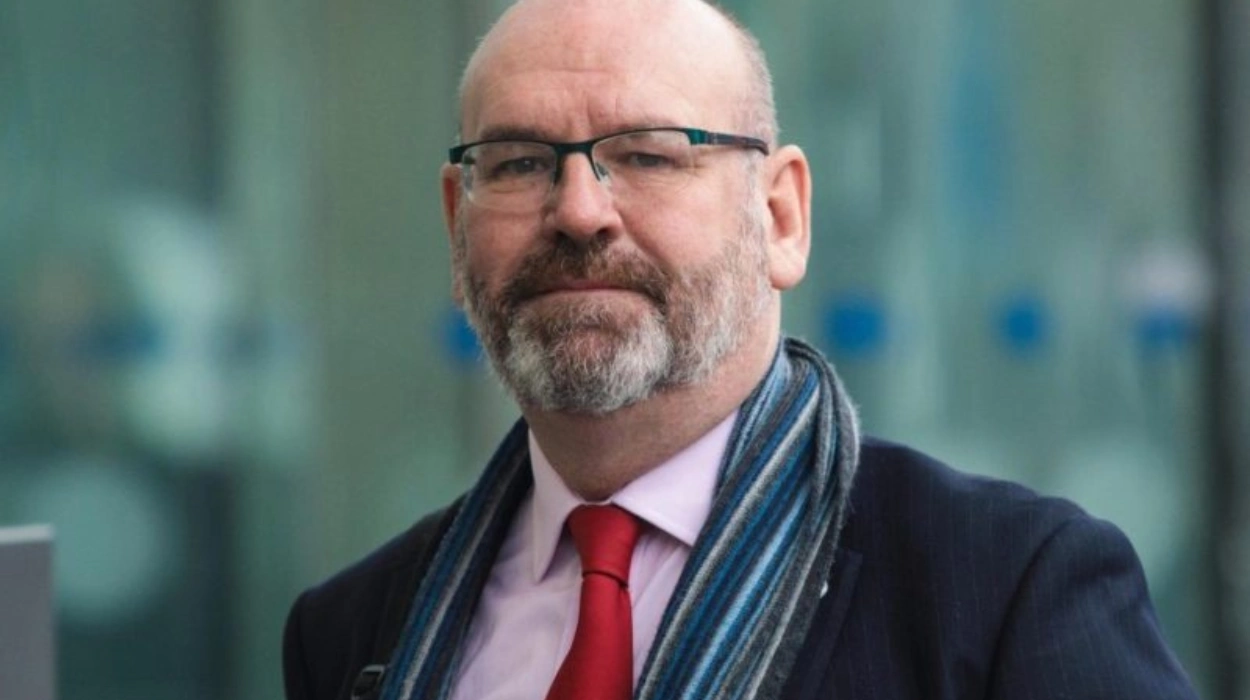UK (Parliament Politics Magazine) – Train unions criticised decisions on pay and staffing, calling for more respect for medical professionals amid ongoing NHS strike tensions.
As reported by The Independent, Aslef chief Mick Whelan backed junior doctors in their pay dispute, saying their current demands are too modest and that they should be paid more than union members.
What did Mick Whelan say about junior doctors’ pay?
Mick Whelan said,
“They’re not asking for enough. What they haven’t asked for is all the money they’re owed for that pay restoration.”
He stated,
“My people earn more than doctors. I’m not going to say my people should learn less – but I do believe that doctors should earn more. The idea is that we’ve started this race to the bottom – we’ve got no respect for vocations anymore.”
Mr Whelan added,
“We’ve got a crisis in traditional vocational areas, where some of the cleverest people in the country give their lives to either go into the health service or go to teach children and teenagers, and then we don’t respect the skillsets they have. They would be far better off going into business.”
His remarks follow Health Secretary Wes Streeting’s accusation that junior doctors have squandered the government’s goodwill by staging a five-day strike.
What did Wes Streeting say about junior doctors’ strike plans?
Wes Streeting criticised the BMA, calling its approach an “unnecessary and unreasonable rush to strike action.” He urged the union to recognise that the government has a duty to all NHS staff.
He said,
“We are back to where we were two weeks ago, when I sat down in good faith and offered to work intensively with them over a few weeks to negotiate a package of measures that would make a real difference in meeting the costs of doctors’ training, the costs associated with being a doctor and the lack of promotion opportunities.”
Mr Streeting added,
“The only difference between now and a fortnight ago is the damage that the BMA has done to the NHS through its reckless strike action.”
In a letter to the BMA resident doctors committee co-chairs, Dr Ross Nieuwoudt and Dr Melissa Ryan, Mr Streeting acknowledged a second issue raised by the BMA over the lack of training places. He added that the issue could have been “avoided.”
The health secretary reaffirmed that the government “cannot move on pay,” however
“prepared to negotiate on areas related to your conditions at work, career progression and tangible measures which would put money in your members’ pockets.”
What did the BMA say about Streeting’s offer?
The co-chairs of the committee stated,
“Resident doctors want this to have been their last strike. We are asking Mr Streeting to leave the political rhetoric behind and put the future of the NHS first.”
They added,
“He could have prevented strike action if he had made a credible offer last week, instead of what we got: the offer of more talks.”
How many NHS appointments were affected by the latest strike?
The latest data on delayed medical appointments, procedures, and operations are set to be revealed this week.
Fewer patients are believed to have been affected this time, as hospitals were instructed to continue with as much care as possible during the nationwide walkout, which concluded at 7 am on Wednesday.
According to hospital officials, the most recent strike saw a lower turnout of resident doctors on the picket lines compared to previous industrial action.
What did Dr Katie Bramall-Stainer say about the future of GPs under the new health plan?
Dr Katie Bramall-Stainer, chair of the BMA’s GP committee, warned ministers that the NHS’s long-term health strategy and ongoing contract issues had brought general practice to a critical crossroads.
She stated,
“The current trajectory threatens the survival of the independent contractor model and, with it, NHS general practice and the trusted family doctor relationship our patients rely on and want to protect.”
The health leader said there was
“disappointment and confusion around the Government’s failure to explicitly commit or even mention the delivery of a new GMS [general medical service] contract within the plan’s pages.”
She added,
“We will continue to develop a set of clear, deliverable demands – including restoring core funding – and we are actively listening to our members as we consider the next steps.”
What did Sir Jim say about staff efforts during the strikes?
NHS England chief Sir Jim Mackey said,
“It has been incredibly impressive to see and hear how hundreds of thousands of staff, including many resident doctors, have pulled together to manage the disruption, protect patients, and ensure the NHS has remained open for care.”
Mr Mackey added,
“We have learned from the last few rounds of industrial action that harm was being caused to patients by the BMA insisting on just prioritising urgent and emergency care. We have all worked hard to avoid that this time, and while there is still some distance to go, the early indications suggest that the planning has worked. That is not to say that services haven’t come under real pressure.”
What did the BMA say about Sir James’s claims on pay rates?
A BMA spokesperson stated,
“These claims by Sir James – that if ‘Extortionate pay rates were offered to striking doctors,’ then nine of the 18 derogations that were not granted, would have been granted – are untrue and unfounded.”
They added,
“When a derogation is agreed between the BMA and NHS England and which requires a resident doctor to return to work, they do not receive any kind of enhanced payment because those resident doctors are going back to their ward or department to do their usual work. Sir James is clearly quite confused about the derogation process if he is suggesting anything different.”


